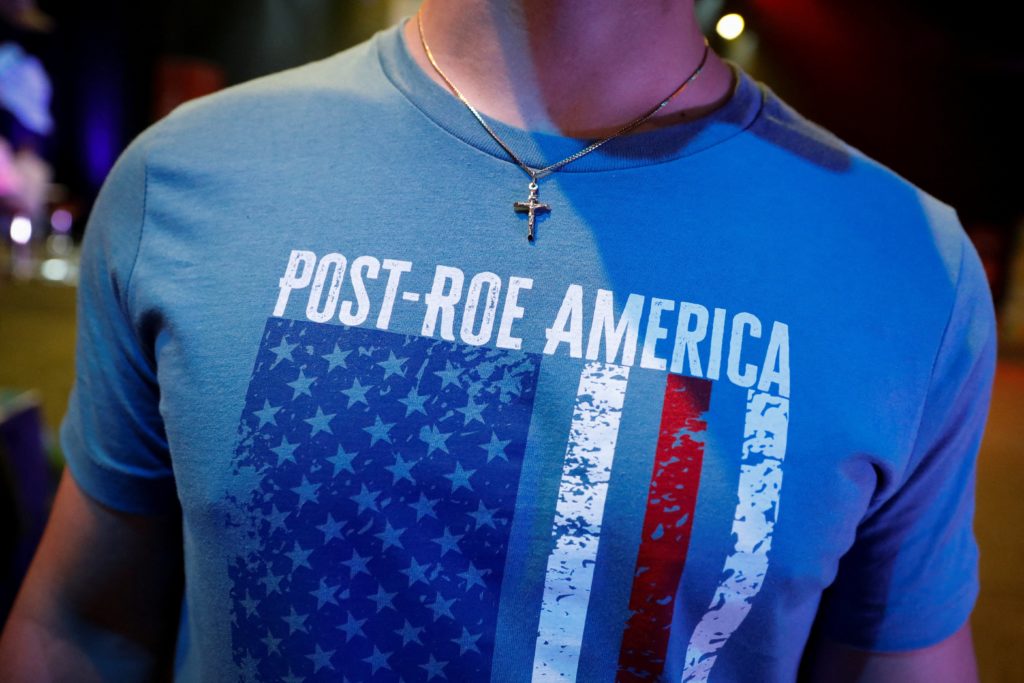The pro-life movement is poised to broaden its scope far beyond working to make abortion illegal, even though that work is still ahead in many states. Surprisingly, I’m finding that it’s Catholic post-liberals and integralists who are sketching out what that scope can and should look like.
It can be a dangerous thing to use shorthand to lump a group of people together who have somewhat different points of view, but I think it is fair to say that there is now a small but rather public group of Catholic intellectuals who do not think liberal democracy — one in which, on the most important matters, the Church must be subordinate to the state — can do justice to what Catholicism claims is true.
They argue that the liberal democratic state is not and could never be neutral about matters of ultimate importance: the human person, sexuality, economic activity, child-bearing and rearing, and much else. Western-style understandings of these issues — formed by individual 17th- and 18th-century European philosophers — have crowded out genuinely Catholic takes on these questions.
Liberal democracy of the contemporary era — on both the left and right — is so utterly hostile to the fullness of the Church’s teaching on ultimate questions that it is very difficult to see how its vision could break through. Particularly when the culture’s vision of the human is so dominated by a false and dangerously radical individualism.
If Catholics believe that what the Church teaches is ultimately and objectively true, the integralists argue that the state should be subordinate to the Church — at least if we believe that the state should play a significant role in facilitating the objective and authentic common good of all.
This is where the rub lies.
Catholic teaching since Vatican II has been that the Church should retreat from running centers of temporal political power, embrace religious freedom for all, and ask the faithful to see ourselves as a pilgrim people called to be salt in light to an often hostile world in many different kinds of creative ways.
As Joseph Capizzi, ordinary professor of moral theology at The Catholic University of America notes, Pope Francis has called Catholics to step out of the comfortable center and move into the energizing discomfort of the peripheries — a place where, unlike the stale centers of power, new life and new ideas break through — including new opportunities for witness and evangelization.
It is perhaps ironic that the integralists actually suggest a way for the Church to move in support of the fullness of its teaching in our contemporary political moment.
By criticizing both the left and the right, they effectively resist the kind of political idolatry in which so many U.S. Catholics put their faith in a conservative or liberal political party. Their thought envisions a political movement in our own culture, which sees no contradiction between being uncompromisingly pro-life and fiercely in favor of social justice — protecting the very young, very old, and the brain-injured equally under law — while at the same time insisting on massive social supports for women and families.
This upsets people across the political spectrum. Libertarians like Jonah Goldberg, for instance, dismissed the attendees of a recent integralist conference as “self-indulgent” and “pro-life New Dealers.”
Now, there is a legitimate concern that the new institutions of social support that will be needed to meet the needs of the vulnerable will be so big that the Catholic principle of subsidiarity will fall by the wayside. If the pro-life new deal is just another series of huge federally run programs, then getting political power and decision-making closest to the particular needs of the communities will indeed be a challenge.
But that’s not the only way to envision how this might work. The George W. Bush administration, for instance, funneled federal dollars to local organizations who administered programs serving needy populations through its Office of Faith-Based and Community Initiatives.
Do we need to end liberal democracy and start a Catholic state in order to do this? Absolutely not. Indeed, in the model just proposed, many local Catholic institutions — already doing wonderful work with the needy — could finally have the resources necessary to genuinely serve those on the peripheries.
Think about it: Catholic schools, hospitals, child care centers, nursing homes, rehab centers, homeless shelters, and mental health clinics, etc., would join countless other local organizations in building up the common good with a preferential option for the poor and marginalized.
Does this seem politically unrealistic? If we assume Reagan-style politics of the 1980s, then maybe it does. But we are in the midst of a major political realignment. Could pro-lifers be salt and light in this fluid political world and work creatively across ideological lines to get something like this done?
Signs point to yes. The pro-life movement is in a new historical moment: one that I’ve called Pro-Life 3.0. You’ll be hearing more about this in the coming weeks, but I’m working with a team of three other pro-lifers who have rounded up the signatures of nearly 200 pro-life leaders who support things like accessible and affordable health care, expanded child tax credits, paid parental leave, flexible work hours, prenatal child support, and affordable child care.
The times they are a-changin’. Dare we hope they bring with them a pro-life new deal?

